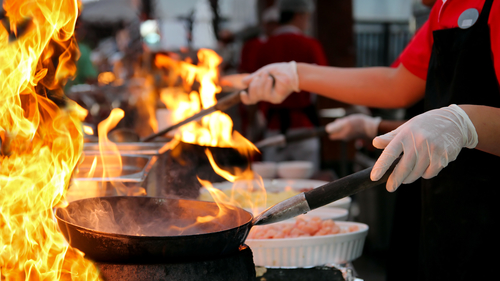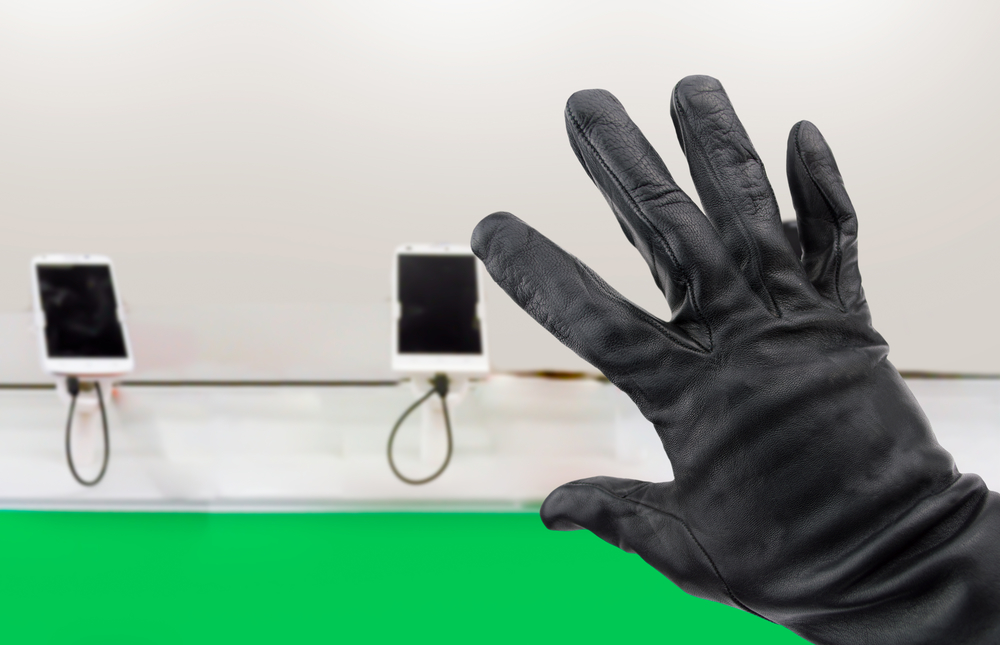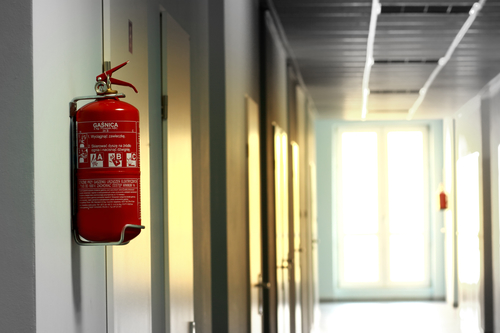When you cook food and handle fire, the smoke and particles tend to accumulate and hang in the air. With the aid of air filtration kitchen hood suppression systems, you wouldn’t have to deal with this issue.
At the center of every commercial kitchen is the stove. This is where you prepare delicious and nutritious meals that you feed family and friends. Every kitchen should have the right hood suppression systems.
Fire Safety in Commercial Kitchens
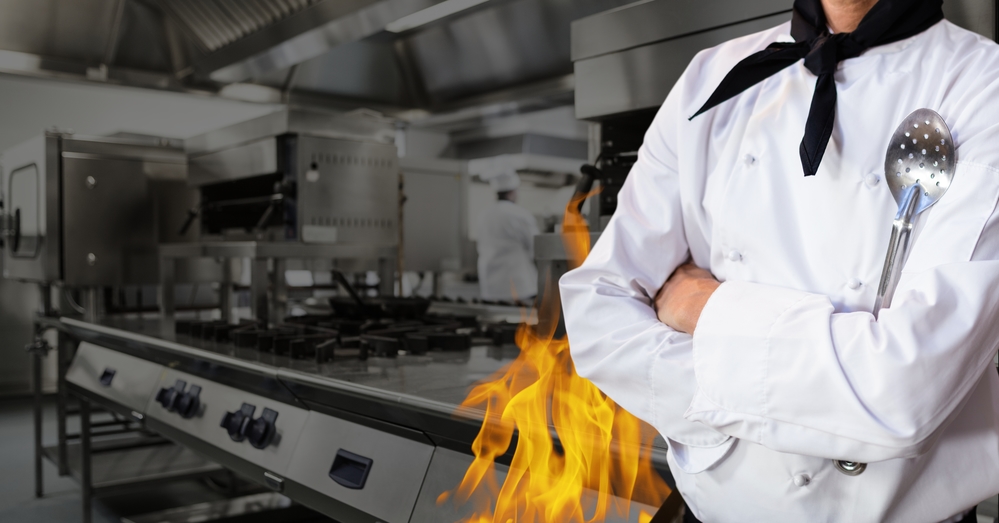
When you’re working in a commercial kitchen, fire safety and protection should always be at the forefront of your mind. Reliable hood suppression systems are necessary for the safety of your business. It’s also vital for the recovery of your business after suffering a cooking fire.
What Is a Kitchen Hood Suppression System?
This type of fire suppression system gives off a chemical extinguishing agent that’s developed to combat cooking fires. The chemicals react with the cooking grease to release a non-toxic, soapy agent that doesn’t burn, which is called the saponification process.
This process provides protection for the range hood, kitchen appliances, and the general kitchen areas against the damages of fire.
For additional safety, hood suppression systems also shut down the electricity and gas source that’s providing power to commercial kitchens.
Professional Installation
It’s necessary to work with professionals for the proper installation inspection, repair, and maintenance of hood suppression systems that follow the code of your jurisdiction. This can prevent dangerous kitchen fires, especially property damage and loss of life.
Kitchen fire suppression systems are developed to combat fires affecting or originating from kitchen appliances. This includes ovens, deep fat fryers, and stoves. The suppression system’s nozzles must be installed within the hood exhaust. The discharged chemicals can directly make contact with the origin of the kitchen fire.
Whether you’re getting a new hood suppression system or adding upgrades to your existing system, professional suppression system specialists can lend their expertise in designing and installing the system.
The entire process – from the design to the planning, installation to testing to final inspection -should be covered. You have to make sure the hood suppression system installed is designed to fulfill your fire safety and protection needs.
Professional Inspection
Kitchen hood suppression systems are made up of complex components. These individual pieces work together to ensure fire safety and protection in commercial kitchens.
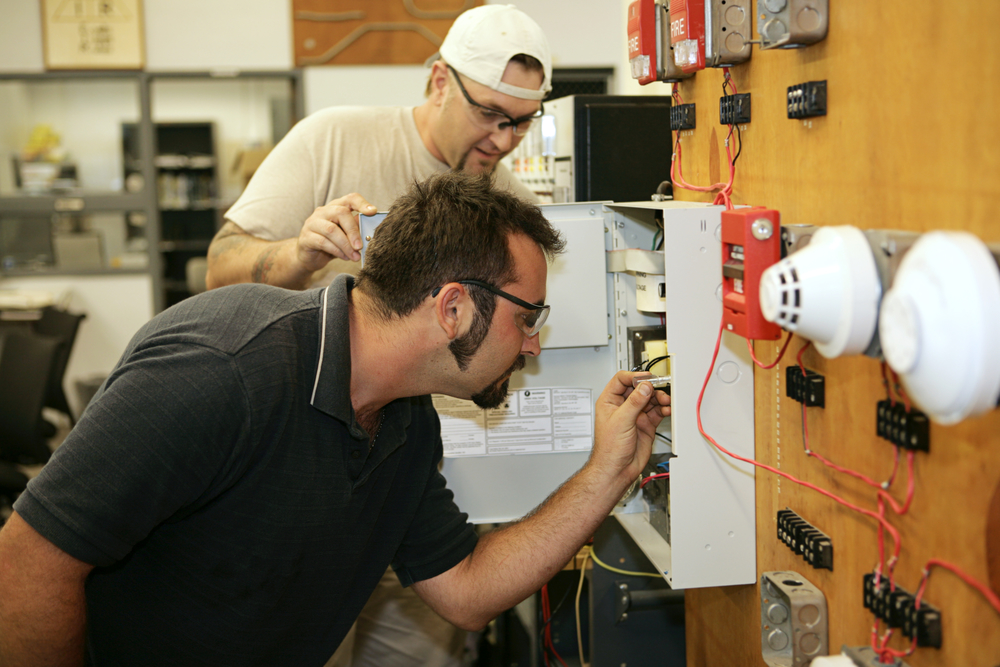
To achieve this mission, regular professional inspections of this fire suppression system is fundamental.
Inspections ensure that every part of the system is functioning accordingly. This guarantees the protection of life and property.
A kitchen hood suppression systems inspection typically includes:
- Visual inspection of conduits, detectors, and nozzles
- Checking the piping for tightness and security
- Cleaning the vents and making sure they are not obstructed
- Checking the hydrostatic test dates and pressurized cylinder gauges
- Internal inspection of the tanks for any damage or corrosion
- Testing and inspecting the remote pull levers
- Cutting a test link for functional checks of the automatic cycle
- Replacing the system cartridges, fusible links, and link housings as needed
- Checking the electrical grids
- Recording and reporting any evident deficiencies discovered during the inspection
Professional Repair and Recharge
If there’s an issue with kitchen hood suppression systems, don’t delay the inspection and repair. You wouldn’t want your commercial kitchen to be left without a properly functioning fire suppression system. Don’t wait to make the necessary repairs until you need the fire suppression system the most.
It’s fundamental to recharge the cylinders if the hood suppression system got discharged in a cooking fire incident. Before you even get back to your standard commercial kitchen and restaurant operations, call professionals to recharge your hood suppression system.
This ensures that your food and restaurant business gets the constant fire protection it needs. By taking care of any issue immediately, you prevent leaving your property defenseless against fire.
This is not the time to be worrying about business downtime. Life is more important. Still, you have to work with experienced and reliable fire suppression system professionals. They can work efficiently and effectively to minimize downtime.
Final Thoughts
Kitchen hood suppression systems are proven to effectively combat fires in commercial kitchens, which is a common site for cooking fires. Invest in one if you’re a smart restaurant owner or manager.
